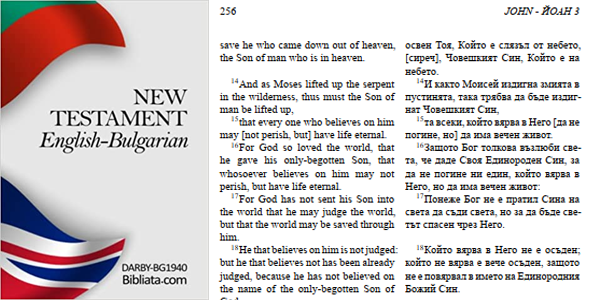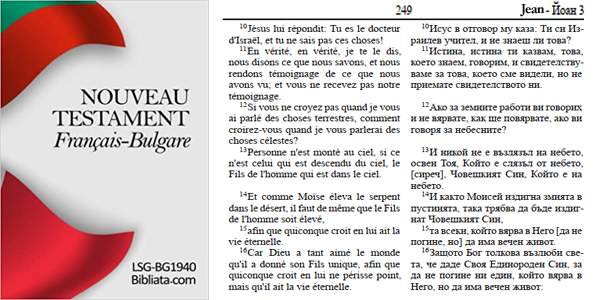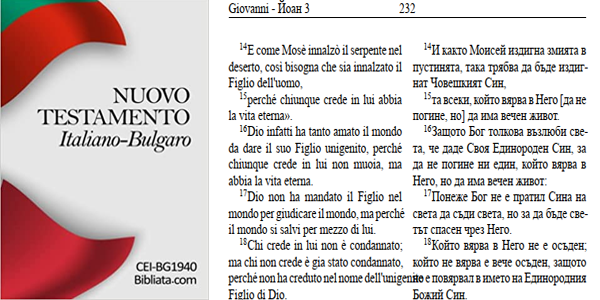Bulgaria: New Interim Government Ahead of Early Elections
President Iliana Yotova has formally nominated Andrey Gyurov, Deputy Governor of the Bulgarian National Bank (BNB), as Bulgaria’s caretaker Prime Minister. The handover of the caretaker government mandate is scheduled for Thursday, February 12, at 10:00 a.m., when Yotova will meet Gyurov at the presidency and task him with forming an interim cabinet under Article 99, paragraph 5 of the Constitution. Gyurov is one of five senior civil servants who had indicated their willingness to take on the caretaker prime minister role during presidential consultations, alongside Deputy Ombudswoman Maria Filipova, Audit Board Chair Dimitar Glavchev, and his deputies Margarita Nikolova and Silvia Kadreva.
Bulgaria holds consultations for new government
“Keep on Stinkin’: Appalachian Ramp History Guide & Cookbook” a New Release by Cup & Cross Ministries
A heartwarming collaboration between a mother and her 11-year-old daughter has resulted in a one-of-a-kind cookbook and history guide celebrating the wild, flavorful ramp. Titled Keep on Stinkin’: Appalachian Ramp History Guide & Cookbook, the book blends delicious recipes with the fascinating cultural and historical journey of this beloved wild leek, showcasing the duo’s creativity and shared passion for food and storytelling.
Ramps (Allium Tricoccum), also known as wild leeks, garlic or onions or even ramsons or wood leeks, are a native North American bulbous perennial flowering plant in the amaryllis family. They have played an essential role in Appalachian and Indigenous diets for centuries. They are celebrated for their pungent flavor, which is a blend of garlic and onion, and their brief, highly anticipated growing season each spring.
Keep on Stinkin’ explores Appalachia’s rich cultural history with a food journey through the ages. This cookbook features a brief history of ramps along with nearly 60 Appalachian-inspired recipes showcasing this wild plant as the star ingredient. These dishes honor traditional mountain cooking with a focus on foraged ingredients, cast-iron skillets, and rustic flavors. Written by Kathryn Donev and her daughter Kariyana, Keep on Stinkin’ is an intergenerational cookbook celebrating their shared love for cooking. Kathryn is an avid home cook who has authored several globally available cookbooks while Kariyana is a young food enthusiast with a talent for crafting bold, unique flavor combinations.

Version 1.0.0
Bulgaria’s “new” caretaker cabinet takes oath before October 27 early elections
The second Dimitar Glavchev caretaker cabinet took the oath of office in the National Assembly on August 27, hours after President Roumen Radev signed the decree naming October 27 as the date of Bulgaria’s next early parliamentary elections.
The special sitting of the National Assembly for the swearing-in, called during Parliament’s recess, lasted just eight minutes, including the oath-taking and playing of the Bulgarian and European Union anthems.
Glavchev will head an interim government with just three personnel changes compared with the one that took office in April and that subsequently underwent minor changes.
Controversial figure Kalin Stoyanov is out as caretaker Interior Minister, but his successor in that portfolio, national police chief Atanas Ilkov, has been described by some parliamentary groups as similarly serving Movement for Rights and Freedoms (MRF) co-leader Delyan Peevski.
Peevski said last week that were Stoyanov excluded from the next caretaker cabinet, he would place him on his list of parliamentary election candidates.
The other changes in the second Glavchev cabinet are deputy foreign minister Ivan Kondov taking over the Foreign Minister portfolio, until now held by Glavchev, and Transport Ministry legal department head Krassimira Stoyanova taking over the Transport Minister portfolio from Georgi Gvozdeikov.
The October 27 elections will be the seventh time in just more than three years that Bulgarians elect a legislature. Only two of those elections produced an elected government, neither of which served a full term in office.
SIGNS of the LAST DAYS: NEW tower of BABEL







Releasing Greek-Bulgarian Interlinear of the New Testament ONLINE
November 1, 2023 by Cup&Cross
Filed under Books, Featured, News, Publication

The day after All Saints Day in Bulgarian is celebrated as the Day of National Awakening. In honor and contribution to the National Awakening, we are proud to release the first Greek-Bulgarian Interlinear of the New Testament ONLINE @ https://evangelieto.com/
Evangelieto.com means The Gospel in Bulgarian and is also a common reference the New Testament texts. This new website is a natural continuation of Bibliata.com – the first Bulgarian Bible online, we released back in the cold winter of 1996.
For Easter 2015, after over eight years of hard work and much difficulties, Cup & Cross Ministries was able to complete and publish the first ever Greek-Bulgarian interlinear based on the Nestle-Aland 28/ UBS-4 texts. This first edition is dedicated to those students of the Bible, who prefer working with the original texts, rather than using the multitude of new Bible revisions often with religious and ideological orientation.
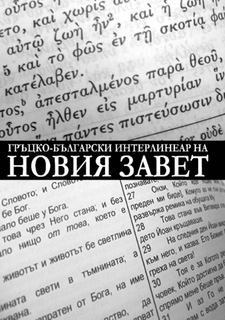 For the 500th Anniversary of the Protestant Reformation, our Greek-Bulgarian Interlinear of the New Testament was presented in Bulgaria’s capital Sofia on All Saints Day 2017. The Greek Bulgarian Interlinear of the New Testament proposed the following solutions to the translation of the Bible in Bulgarian:
For the 500th Anniversary of the Protestant Reformation, our Greek-Bulgarian Interlinear of the New Testament was presented in Bulgaria’s capital Sofia on All Saints Day 2017. The Greek Bulgarian Interlinear of the New Testament proposed the following solutions to the translation of the Bible in Bulgarian:
1. A non-received text – Textus Haud Receptus
2. Critical Edition of the Greek New Testament alike Revised Textus Receptus, Tischendorf, Westcott and Hort, von Soden, Nestle-Aland, UBS and SBL GNTs
3. Literal translation from Greek made word for word without dynamic equivalents
4. Linguistic paradigm for repetitive parallel permutation structures in the Greek-Bulgarian translation alike form criticism of the Bible
5. Analytical Greek New Testament with complete morphology of the words
This new translation took several years to refine through multiple revisions, re-readings, and new re-translate where needed in order to produce an interlinear with priority advantages and distinctive features as follows:
1. The text is arranged in three lines – Greek original, literal translation and for the first time in a Bulgarian publication, an analytical apparatus with detailed morphology of the words.
2. A brand-new word for word translation, not phrase for phrase or simple imposed text on an already existing translation, challenges the reader into a deeper understanding of the Word.
3. Unnecessary text markers and explanations have been avoided because the parallel stylistics between Greek and Bulgarian are much more similar than other languages even when accompanied with Strong’s numbering.
4. The literal meaning of the text is shown without the dynamic equivalent characteristic of other interlinear editions.
5. All participles/predicates are literally translated avoiding the superimposition of like, as, which, etc., when they are not in the original text.
6. All definite articles are given as in the Greek before the word (not at the end part of the word as it is done in Bulgarian) even in the tradition of Nomina Sacra.
7. Enforced literalism on understandable New Testament terminology such as Lord/Master, church/ecclesia/congregation/gathering/assembly, baptism, etc. is avoided.
8. The literal word for word translation preserves case and gender as possible in over 90% of the New Testament text.
9. The applied critical apparatus in addition to the analytical morphology, includes designation of all verses and passages of critical difference with the Nestle-Aland GNT.
10. Hitherto missing morphology now provided, not only shows why a given word is translated in the chosen way, but enables the reader to navigate through more complex grammatical structures of the Greek language and understand them.
To translate the Bible is like to climb upon top of Mount Everest. You put everything at stake. You spend yourself to the last. You forget the pain and fatigue. You leave behind the unimportant things. You carry only the most important ones. Every breath is for eternity. Every step is last. And so, all the way to the top! The price is unbearable, but the reward is extraordinary. Because there, from the top, you finally see things differently. And it is almost impossible to go back down. Even if you can, down now feels different. And one can only hope others too will climb this peak, to perceive and translate for the next. So, that they too can see. For this reason, our interlinear is by no means the last. It is only a seed, which will bear long lasting fruit. For the generations…

Bulgaria gets new government
Bulgaria gets new government as former rivals enter uneasy alliance
SOFIA, Bulgaria (AP) — Bulgaria’s parliament on Tuesday formally approved the country’s new government proposed by the two main political rivals in a bid to end a 30-months-long political crisis, restore stability and spur economic development in the poorest EU member country.
The GERB party of ex-Premier Boyko Borissov, which won the April general election, and the runner-up, the pro-European liberal coalition “We Continue the Change – Democratic Bulgaria” have agreed to form the first-ever Bulgarian government where the post of prime minister will change hands halfway through.
Lawmakers voted 132-69 to elect Nikolay Denkov, a 60-year-old chemistry professor and former education minister, as prime minister. Denkov is a founding member of the reformist “We Continue the Change” party.
In a separate vote, legislators also approved the Cabinet, in which GERB’s Maria Gabriel, a former European Commissioner, will serve as deputy head of government and foreign minister. After nine months, Denkov and Gabriel will switch positions for the rest of the term.

160,000 Pentecostals in Bulgaria Reported by the NEW Encyclopedia of Global Pentecostalism
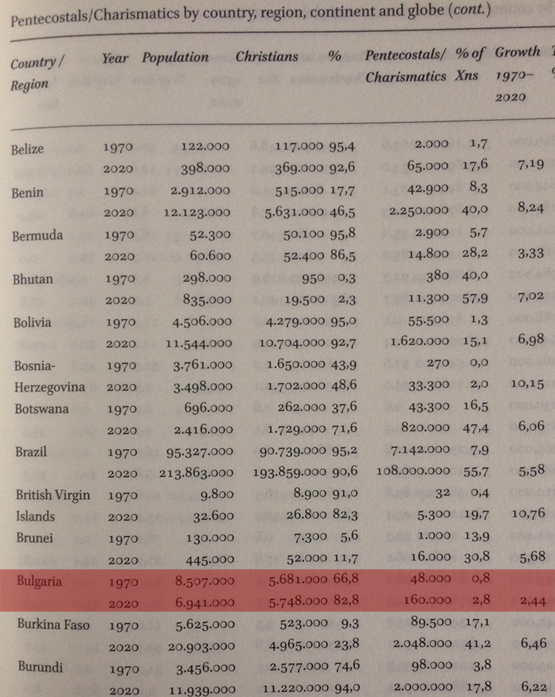
Greek-Bulgarian Interlinear of the New Testament in Wal-Mart
Greek-Bulgarian Interlinear of the New Testament (Critical Edition with Apparatus) (Paperback)
This new translation took several years to refine through multiple revisions, re-readings, and new re-translate where needed in order to produce an interlinear with priority advantages and distinctive features as follows:
- The text is arranged in three lines – Greek original, literal translation and for the first time in a Bulgarian publication, an analytical apparatus with detailed morphology of the words.
- A brand-new word for word translation, not phrase for phrase or simple imposed text on an already existing translation, challenges the reader into a deeper understanding of the Word.
- Unnecessary text markers and explanations have been avoided because the parallel stylistics between Greek and Bulgarian are much more similar than other languages even when accompanied with Strong’s numbering.
- The literal meaning of the text is shown without the dynamic equivalent characteristic of other interlinear editions.
- All participles/predicates are literally translated avoiding the superimposition of like, as, which, etc., when they are not in the original text.
- All definite articles are given as in the Greek before the word (not at the end part of the word as it is done in Bulgarian) even in the tradition of Nomina Sacra.
- Enforced literalism on understandable New Testament terminology such as Lord/Master, church/ecclesia/congregation/gathering/assembly, baptism, etc. is avoided.
- The literal word for word translation preserves case and gender as possible in over 90% of the New Testament text.
- The applied critical apparatus in addition to the analytical morphology, includes designation of all verses and passages of critical difference with the Nestle-Aland GNT.
- Hitherto missing morphology now provided, not only shows why a given word is translated in the chosen way, but enables the reader to navigate through more complex grammatical structures of the Greek language and understand them.
5 NEW BIBLES published in 2023
The text of the Bulgarian Bible is printed in the United States. The revision methodology used in the editing of the original text is patented and protected by PCT international patent law and may not be duplicated. Copyright © 1990-2023 by Bibliata.com.
English-Bulgarian New Testament
English Bulgarian New Testament Vol. 1 New Bible Diglot Series by Bibliata.com (2022)
The Darby Bible was first published in 1890 by John Nelson Darby, an Anglo-Irish Bible teacher associated with the early years of the Plymouth Brethren. Darby also published translations of the Bible in French and German. J. N. Darby’s purpose was, as he states in the preface to his English New Testament, to make a modern translation for the unlearned who have neither access to manuscript texts nor training and knowledge of ancient languages of the Scriptures. Darby’s translation work was not intended to be read aloud. His work was for study and private use. In his own oral ministry he generally used the English KJV Bible.
Nuevo Testamento Español-Búlgaro
Nuevo Testamento Español-Búlgaro Vol. 2 New Bible Diglot Series by Bibliata.com (2022)
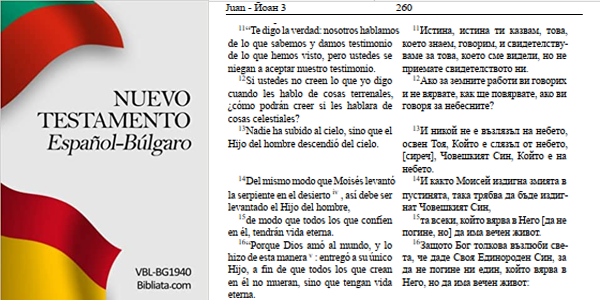
The translation has been made directly from the standard Nestle-Aland Greek text. Its purpose is to be a faithful translation of its original meaning, without difficult or confusing terms. The style has been translated into contemporary English and Spanish, avoiding the use of slang or colloquial words, thus speaking to our modern society in a way that everyone can understand.
Neue Testament Deutsch-Bulgarisch
Neue Testament Deutsch-Bulgarisch Vol. 3 New Bible Diglot Series by Bibliata.com (2022)
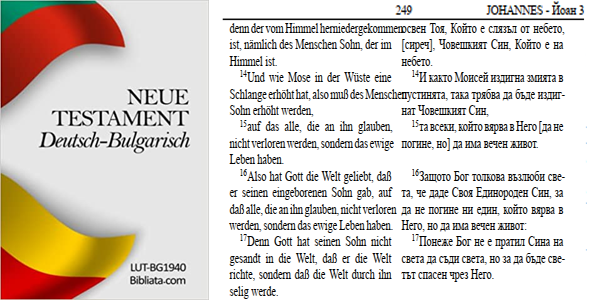
The Luther Bible is a German language Bible translation from Hebrew and ancient Greek by Martin Luther, of which the New Testament was published in 1522 and the complete Bible, containing the Old and New Testaments and Apocrypha, in 1534. The language was updated in 1912.
This Bible is in the public domain in the United States. We are making it available in the same format in which we acquired it as a public service.
Nouveau Testament Français-Bulgare
Nouveau Testament Français-Bulgare Vol. 4 New Bible Diglot Series by Bibliata.com (2022)
The LSG was published in 1910 as the classic French equivalent of the English King James Version. Louis Segond French Bible – (October 3, 1810 – June 18, 1885), was a Swiss theologian who translated the Bible into French from the original texts in Hebrew and Greek. He was born in Plainpalais, near Geneva. After studying theology in Geneva, Strasbourg and Bonn, he was pastor of the Geneva National Church in Chêne-Bougeries, then from 1872, Professor of Old Testament in Geneva. The translation of the Old Testament, commissioned by the Vénérable Compagnie des Pasteurs de Genève, was published in two volumes in 1871 (Meusel has 1874 as the publication date), followed by the New Testament, translated as a private venture, in 1880. The text was then reviewed by experts. The result is the 1910 revision that is now freely available on Internet.
Nuovo Testamento Italiano-Bulgaro
Nuovo Testamento Italiano-Bulgaro Vol. 5 New Bible Diglot Series by Bibliata.com (2022)
An Italian translation of the Holy Bible according to the Roman Catholic canon, based on the original texts and meant to be typical for use in liturgy, approved by the Italian Conference of Catholic Bishops and published in 2008. The previous 1974 edition is taken into account, but it is often corrected, while trying to reflect recent advances in Biblical exegesis, and to respect the literary style of different Biblical authors. The Book of Esther offers two parallel translations (second translation is offered in module CEI2008-2), based on the Greek text and on the Hebrew text.



